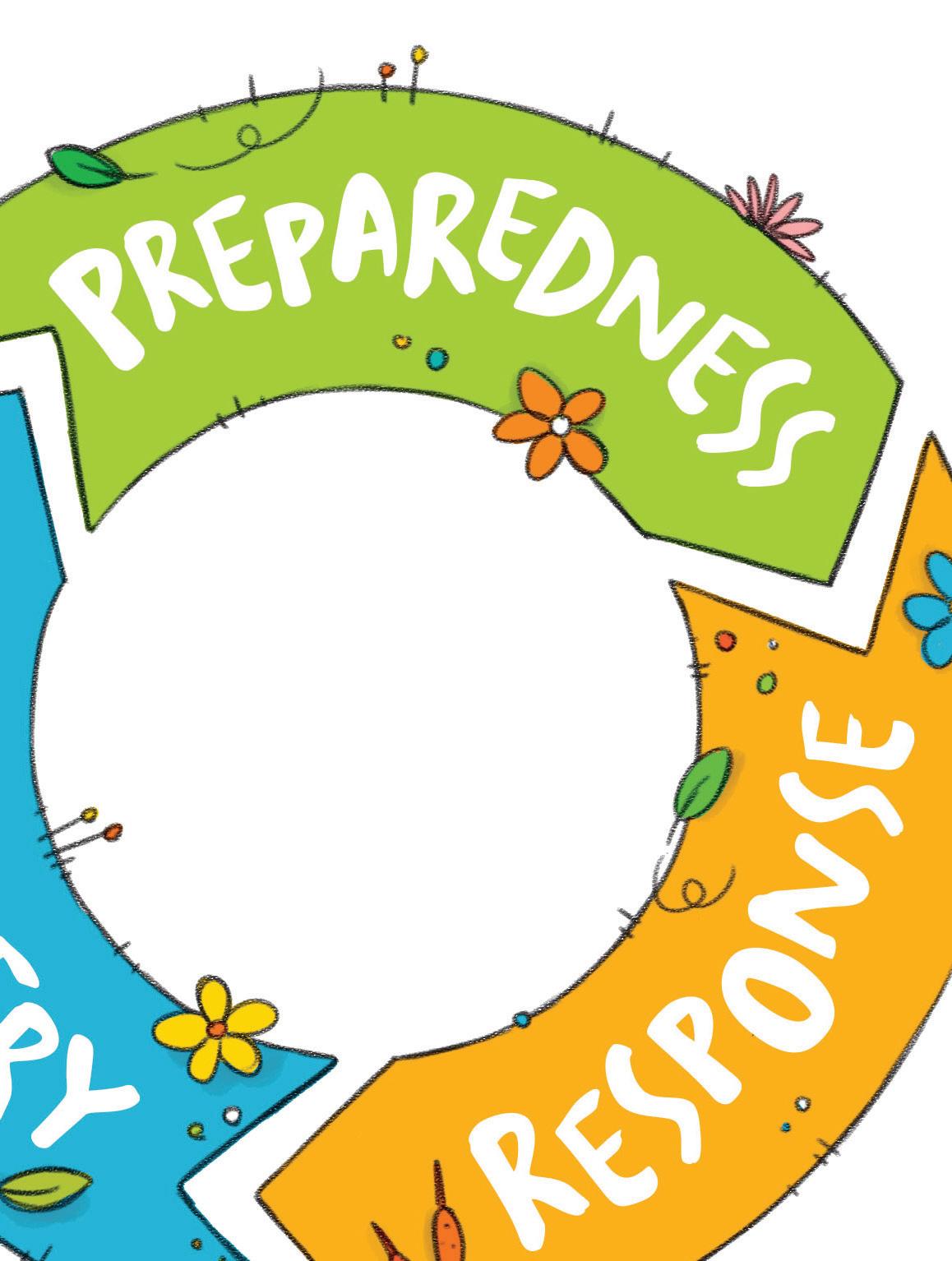
5 minute read
Innovative learning resources get everyone talking
from Bedrock #3 2022
by IEU NSW/ACT


Advertisement


IEU members and early childhood education (ECE) teachers Ronnelle Sanders and Deborah Wilson discuss how they helped strengthen students’ oral language skills and development during COVID-19.
Prior to COVID-19, children had opportunities to have daily conversations with peers, interact with teachers and develop essential skills in speaking and understanding. But the pandemic has hugely impacted face-to-face social interaction between children in the past two years, and has reduced the things children learn to talk about.
With fewer experiences outside the home, there has been less opportunity for children to develop new vocabulary or experiment with language.
Although children spent a significant amount of time in the family environment, it was reported by parents that these moments weren’t always quality time to develop speaking skills.
Often caregivers were working and on screens themselves, so fewer opportunities for deep conversations were available and the increase in screen time for children was unavoidable, therefore they lost opportunities to practise their oral language skills.
The impact of declining oral language skills in early years children was present and concerning prior to COVID-19, and research shows that it is not something children will simply ‘grow out of’.
Rather, it needs to continue to be addressed and can be done so through increased information given during initial teacher training, as well as reminding parents they are the first teachers in a child’s learning journey.
Parents part of the process
Engaging and upskilling parents to perform this role effectively and confidently is incredibly important.
Despite online learning proving to be possible, nothing can replace human contact and face-to-face conversations in developing children’s oracy.
We recently presented at the Griffith University Creating Futures Summit, detailing how we adapted our ECE resources during this difficult time.
Over the last couple of years, together with the staff at St John’s Anglican College, Forest Lake, we have been experimenting with a number of parent engagement strategies to boost the oracy skills of their early years students at the college.
Undertaking research through the Independent Schools Queensland (ISQ) Research in Schools project, and collating data from the St John’s parent community, highlighted many opportunities where parent involvement was evident – but not necessarily parent engagement.
Blossom Bags
We reached out to Christy Chrosthwaite with our vision to create take home bags and thus, Blossom Bags™ was born.
Blossom Bags are filled with fun family literacy tasks based on a story book, with comprehension questions and fun activities and props to support the text, as well as fridge magnets and brochures with simple tips for having enriching conversations with children at home.
As well as developing these special bags, we also created some literacy brochures for parents around oracy topics and had these translated into different languages, modelling literacy strategies to parents at specially organised family events before COVID-19 put a stop to these interactions.
Talk Time Keys
We have also created the Talk Time Keys for use within children’s home environments, which have had a positive impact on helping families to enhance their young children’s oral language journey and maintain contact with the school community.
These laminated keys come with a range of conversation starters useful for the dinner table and car trips.
The keys are divided into colour categories, with openended questions, requiring a child to answer with more than just a simple ‘yes’ or ‘no’ and thereby promoting deeper, more meaningful conversations and stimulating a child’s cognitive and oracy development.
This was also reflected in the feedback from their families.
During COVID-19, videos were created on how to use the Blossom Bags and Talk Keys at home and these were very helpful in continuing the oracy journey while the children were not at school.
There are now 192 sets of keys in circulation, (with more due to be released soon) in the school community (all translated into languages other than English) which parents have reportedly responded to with enthusiasm.
Impact for students
As a result of the Blossom Bags and Talk Time Keys, oracy across the college has grown and improved.
Although difficult at first, we were already a part of an Independent Schools Queensland (ISQ) Research in Schools project and had, by coincidence, started work on this project; so when COVID-19 hit, this hastened the speed of information and communication to engage parents.
The teachers at St John’s felt able to recalculate and still complete the brief to ensure authentic parent engagement in oracy within the early years.
To find out more, email: christy@blossombags.com.au
Deb Wilson
During her career, Deb Wilson has been a classroom teacher, music teacher and music co-ordinator in the state, independent and tertiary education sectors. Early in her career, she developed a keen interest in the areas of music and learning support and how music can enhance the development of oral language, literacy, numeracy, fine and gross motor skills and social skills in the early years. Deb has been nominated for a NEITA award and a Teach-X award both times for her interest in parent engagement and community involvement. She is currently upgrading her early childhood education knowledge and skills at Griffith University and teaches Prep at St John’s Anglican College, Forest Lake.
Ronnelle Sanders
Ronnelle has been an early childhood education and primary classroom teacher in both state and independent school settings and is currently the EAL/D co-ordinator at St John’s, where many students come from families who have English as an Additional Language or Dialect (EAL/D). Language is her passion, with a key focus on the learning journey of children’s oracy skills and the strong interconnection with literacy and numeracy. She is a strong advocate for the explicit development and establishment of engaged, supportive relationships between the home and school. Ronnelle has been a finalist in the Australian Education Awards for her work in EAL/D Parent and Community Engagement and is an International Oracy Leader and LEAD teacher.
References
I Can Charity 2022, Speaking up for the Covid generation, accessed 16 July 2022, ican.org.uk/speaking-up-for-thecovid-generation/> Independent Schools Queensland (ISQ) 2022, Parent Engagement, accessed 16 July 2022, www.isq.qld.edu.au/schools/principals-schoolleaders/parent-engagement/#:~:text=Parent%20 Engagement&text=Parent%20engagement%20requires%20 schools%20and,contributions%20to%20a%20child’s%20 education> Talk Time Keys: one school’s simple strategy to enrich conversations at home, Queensland Independent Schools Parents Network, November 10 2020, accessed 16 July 2022, www.parentsnetwork.qld.edu.au/2020/11/10/ talk-time-keys-one-schools-simple-strategy-to-enrichconversations-at-home/>










